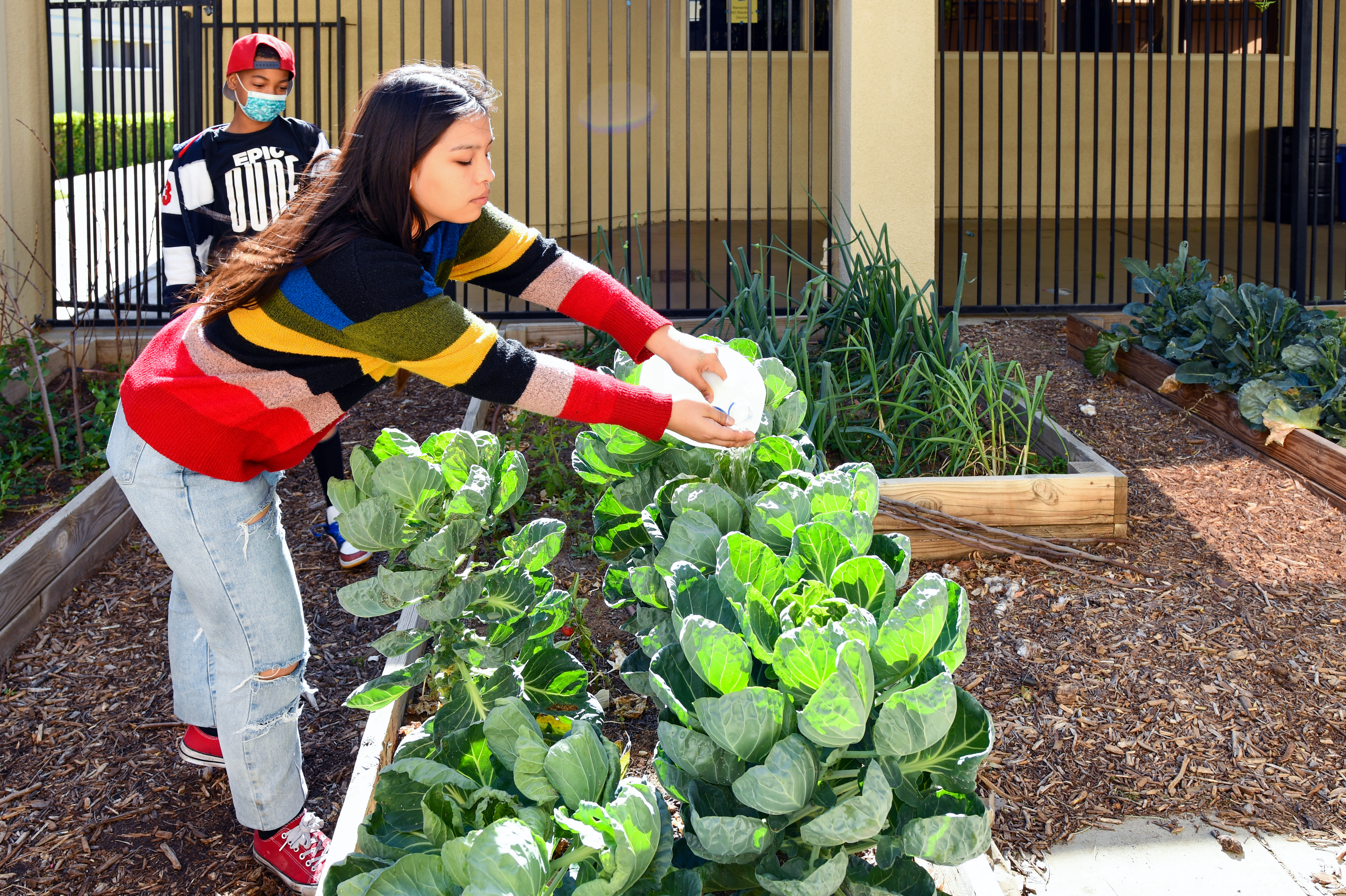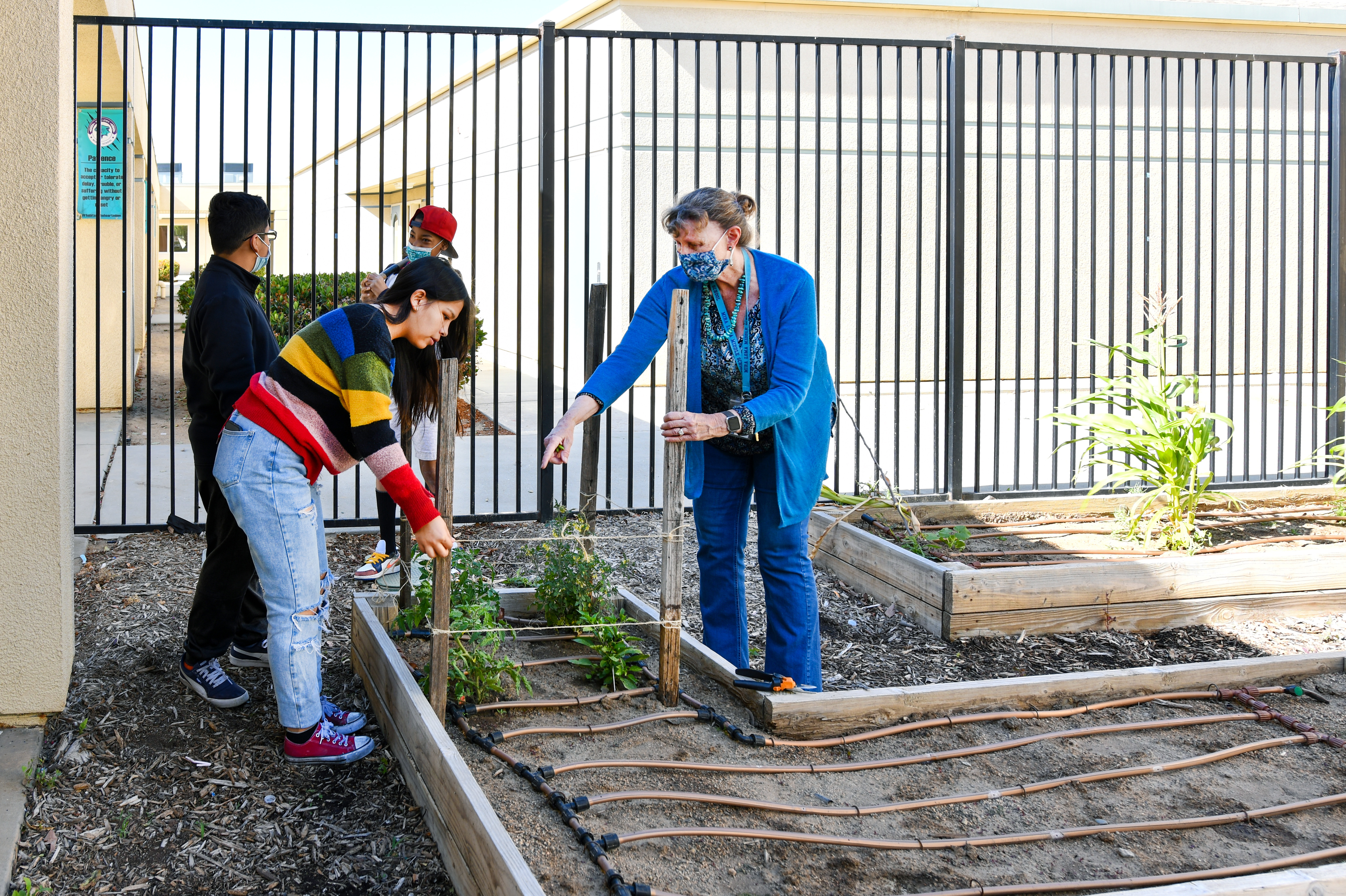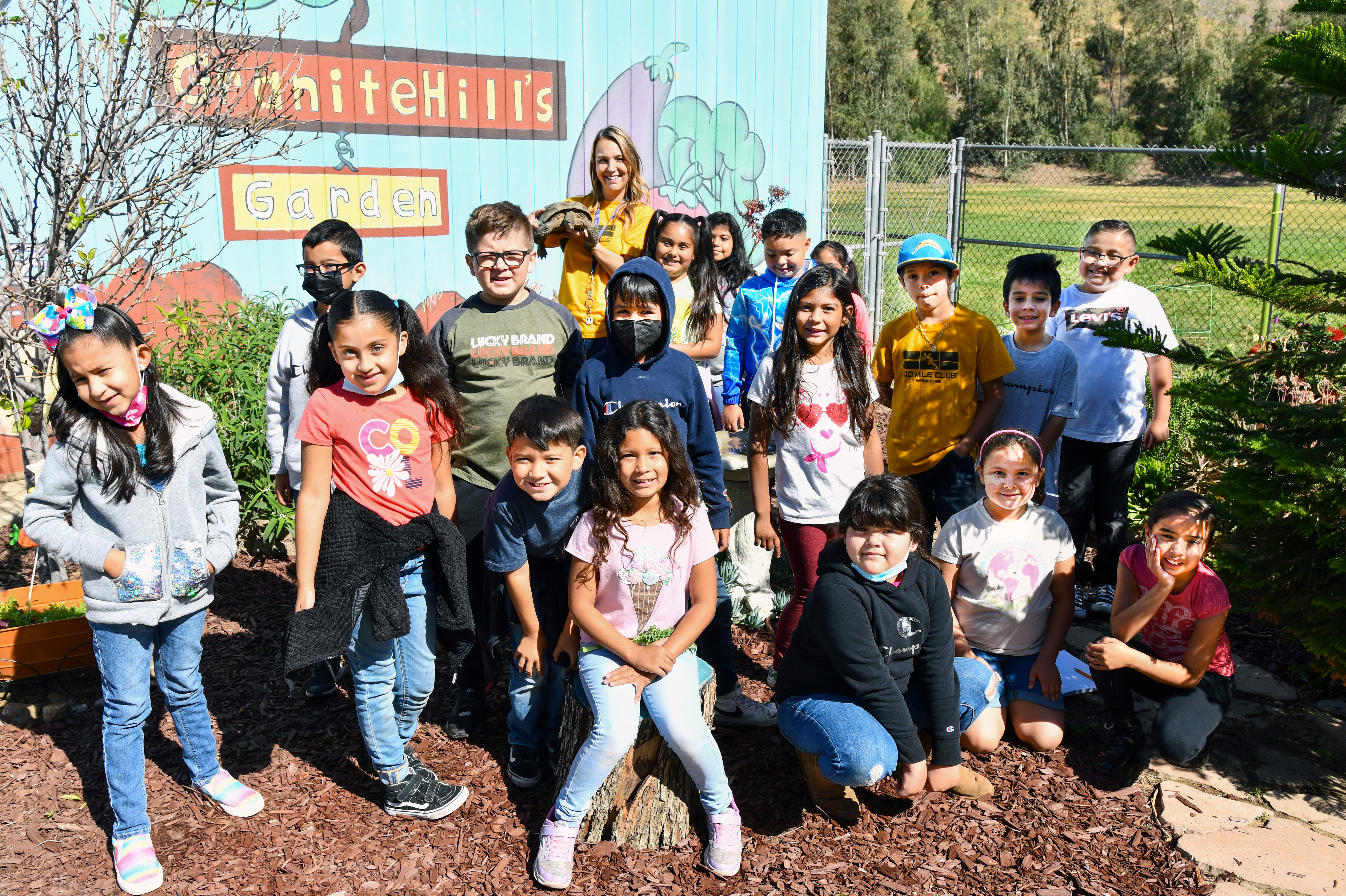Early in the school year, Patnaree Palacios noticed the Mira Loma Middle garden appeared a bit gloomy. In the hopes that some attention would brighten up the school, the 8th-grader went to her principal, Mary Boules, and asked permission to start a garden club. Ms. Boules was supportive of the idea and knew exactly who to ask to be the club’s advisor.

“I just jumped at the chance,” said Robin Reed Riggle, art teacher.
Ms. Riggle was already familiar with the garden. She had her own plot of flowers, which her students draw for art assignments. Now she and her garden club care for all the plots each Thursday after school as part of the Expanded Learning Opportunity (ELO) program. “You see other students taking pictures and it's really beautiful,” said Patnaree. “It makes other peoples’ day, too, not just mine.”
Along with a variety of flowers, the garden club also grows fruits and vegetables. This past fall, members harvested cauliflower and broccoli, which Ms. Riggle used in a potato soup that she served during one of their meetings. Students enjoyed the dish so much that they asked for seconds and thirds. Recently, they picked sugar snap peas. “It's great to have the students be able to grow something they get to eat and know that it's fresh and clean and wholesome,” shared Ms. Riggle.

But there are challenges to gardening without pesticides. Insect infestations can wreak havoc. Sometimes removing an infestation means cutting off part of the plant. Other times, the entire plant must be discarded. Hero Aguirre, who comes from a family of farmers, weeds the Mira Loma garden each week to protect the club’s crops. Other students focus on watering, planting, or construction.
"I’ve learned that with a lot of different people and different opinions, the garden can come out a lot nicer, healthier, and overall better,” said Hero.
Granite Hill Elementary’s garden is also maintained by students, but much younger ones. The school's 2nd and 3rd-graders do the majority of the work, under the supervision of 2nd grade teacher, Kathleen Brooks. Apart from helping students meet their academic science standards, Ms. Brooks says time in the garden helps kids feel connected to something and teaches them to work as a team. “You can just feel the positive energy when they're out here,” she said.

Much of what they grow is edible, and students are fearless when it comes to snacking as they work. “That kind of blew me away,” said Ms. Brooks. “I think when they have ownership, when they're actually growing it and they see the food coming from the earth, they’re more excited to try it.”
The garden also provides food for Wilbur, Ms. Brooks’ 55-year-old California Desert Tortoise, who acts as a part-time class pet. Ms. Brooks adopted Wilbur 15 years ago when the garden started. “Everything came together at that time to build the garden and grow food for him, too,” she said.
Granite Hill’s garden seems to have a lasting impact. Ms. Brooks says that older students approach her to express how much they loved working in the garden. “It seems to really affect them, and I'm hoping that it inspires them to have their own gardens,” she shared. “I think it inspires every kind of student from kindergarten all way up to 6th grade.”

